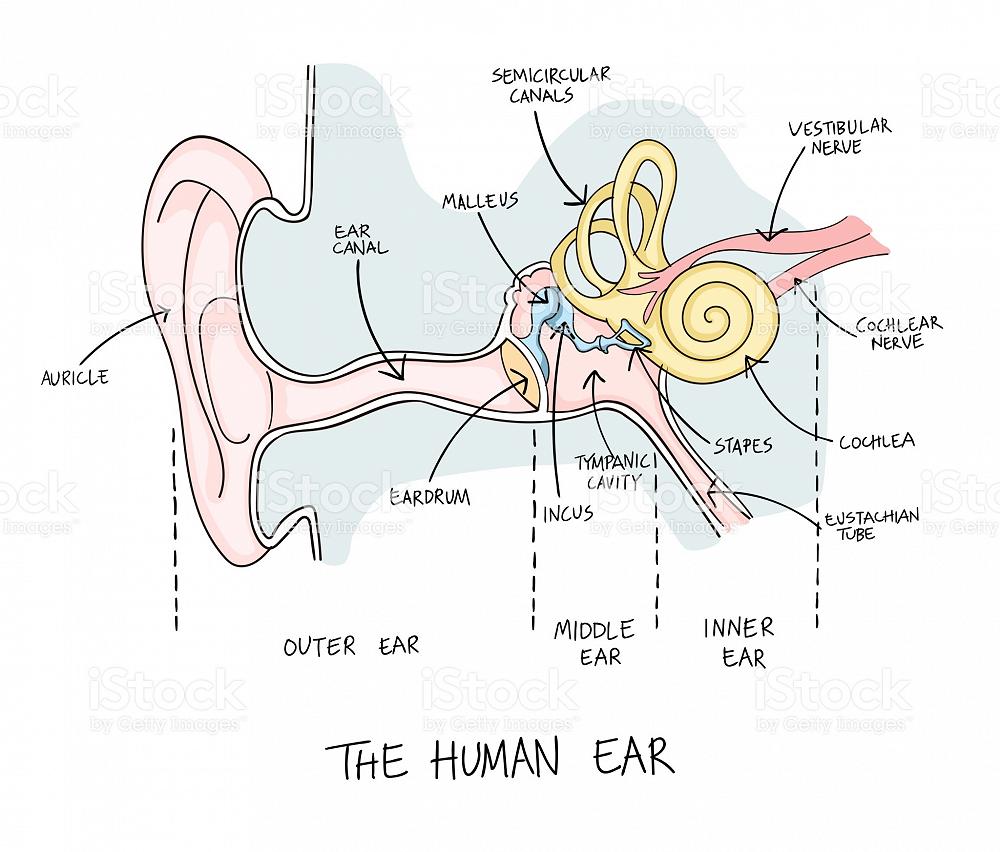Posted Monday December 2, 2019
The labyrinth is a complex system deep inside your ear that includes the cochlea that relays sound to your brain, and the vestibular system that maintains your sense of balance. If the labyrinth is inflamed it affects your hearing and balance — a condition known as “labyrinthitis”.
The most common symptom of labyrinthitis is severe dizziness or vertigo; some people aren’t able to stand upright. Other common symptoms are nausea and hearing loss, headaches, tinnitus, ear pain and discharge, blurred or double vision, or nystagmus (rapid eye movement).
Symptoms can be severe but usually improve within a few days, and most people recover with their balance and hearing fully restored. Sometimes labyrinthitis lasts for several weeks, which affects your ability to get on with life, so if you don’t improve after 3 weeks, or if you have sudden hearing loss in one ear, contact your GP.

What causes labyrinthitis?
Labyrinthitis is usually caused by a virus that has spread from the respiratory system into the inner ear. Some people have no viral symptoms, and many experience only balance symptoms with no hearing loss — known as vestibular neuronitis. In rare cases, labyrinthitis is caused by bacteria that enter the labyrinth when the membranes between the middle and inner ears are broken. This is a serious illness that can lead to permanent loss of hearing or balance. It is more likely to affect young children.
Diagnosis & treatment
Your GP may check your ears for inflammation and infection and ask you to move your head or body. They will also check your eyes; if they're flickering uncontrollably (nystagmus) it's usually a sign that your vestibular system isn't working properly. You may also need to have your hearing tested.
Treatment involves bed rest and drinking plenty of fluids to avoid dehydration. If your symptoms are severe, your GP may prescribe medication to reduce dizziness and nausea. If your doctor thinks the infection is bacterial you’ll be offered antibiotics, and because of the increased risk, a hearing test is recommended.
Prognosis
Your symptoms should improve after a few days. Recovery generally takes from one to six weeks, however, it is common for residual symptoms to last a couple of months. Complications are unusual, but for several years after the infection you may experience mild dizziness when you move your head. If you’re dizzy or unbalanced lie on your side in a comfortable position — avoid alcohol, bright lights and noise or anything that causes stress. Do not drive, use tools and machinery, or work at heights.
Contact your GP if you develop additional symptoms that suggest your condition may be getting worse: mental confusion, slurred speech, double vision, weakness or numbness in any part of your body, or a change in the way you usually walk. You may need to be admitted to hospital for further assessment and treatment.

More information is available at:
https://www.nhs.uk/conditions/labyrinthitis/
https://www.menieres.org.uk/information-and-support/symptoms-and-conditions/labyrinthitis



